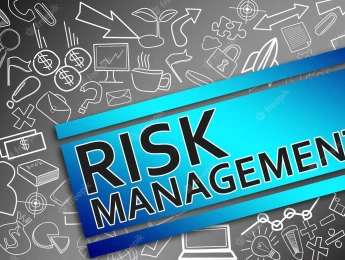It is crucial for a government agency to be adaptable and prepare for potential failures. In situations where risks occur, plans and strategies need to be in place to provide a clear course of action. Without effective risk management, the agency’s productivity may be heavily reduced, profits can be greatly lost, and its reputation may be permanently damaged.
To ensure a government agency can recover from challenges, there must be a strong competency surrounding risk and risk management. Risks can occur in every area of an organisation and can be influenced by internal and external factors. Risk management must be established and monitored extremely closely to manage these risks. Risk assessments are essential; these should identify potential risks and allow for effective prevention and contingencies.
Internal Auditing Committees are incredibly effective at managing risks. These committees are tasked with various responsibilities to prepare and prevent large-scale risks such as fraud. They will also manage different policies, including OMBUDS and whistleblowing policies.
Understanding the depths of potential risks will allow an agency to extensively plan for them, implement preventative measures and prepare all necessary personnel for their duties.
Upon completion of this course, participants will be able to:
- Understand the importance of effective government, risk management and compliance (GRC).
- Align GRC structures with organisation functions and understand their fundamentals and rules.
- Assist in formulating government board committees.
- Conduct risk assessments and risk mitigation and establish contingencies as a part of risk management.
- Utilise various methods to improve the decision-making process.
- Advance the audit committee skills and responsibilities of important personnel.
- Assimilate a new risk-based approach to compliance and internal audit functions.
- Explore strategies to reduce systemic corruption within internal government agencies.
This course is designed for anyone involved with corporate governance who wishes to further their skills and knowledge. It would be most beneficial for:
- Audit Board Committee Members
- Senior Executives
- Legal Advisors
- Risk Managers
- Internal Audit Managers
- Strategy and Planning Managers
- Finance Managers
- Accountants
- Operations Managers
This course uses a variety of adult learning styles to aid full understanding and comprehension. Participants will review case studies of established corporate governance boards and committees to highlight areas of effective risk management, methods and techniques used.
To fully develop the course knowledge and risks, participants will participate in a variety of learning exercises, including seminars, video materials, practical demonstrations, and group activities. They will also be supplied with all the tools necessary to guarantee successful completion of the provided tasks and assignments.
Day 5 of each course is reserved for a Q&A session, which may occur off-site. For 10-day courses, this also applies to day 10
Section 1: Introduction to GRC
- Describing the concepts, principles, and purpose of corporate governance.
- Identifying common challenges faced within the corporate governance world.
- Assessing how corporate governance has been implemented within different organisations.
- Establishing a government board committee – defining roles and responsibilities.
- The integration of risk management, compliance, and internal auditing.
Section 2: Fundamentals of Risk Management
- Explain the role of risk management, typical processes, and those primarily involved.
- Analysing various methods, policies and infrastructures of risk management frameworks and recognising best practices for an organisation.
- Benefits and limitations of different risk management frameworks.
- Balancing key performance indicators (KPI) with key risk indicators (KRI).
- Creating a risk register.
Section 3: Identifying Organisational Risks
- Categorising risks by severity, probability, impact on productivity and ease of solving.
- Utilising different risk assessment methods for accurate risk identification – decision tree, risk matrix and failure modes and effects analysis (FMEA).
- Understanding how a particular risk can cause a domino effect of risks triggering throughout an organisation.
- External and internal influences on risk and minimising them.
- Typical risks faced within a government agency – financial, operational, non-compliance, political and reputation.
Section 4: Risk-based Compliance and Internal Audit
- Approaching risk compliance from all angles.
- Roles, responsibilities, and objectives as a Compliance Officer.
- Preparing for large-scale threats – money laundering and terrorist financing.
- Conducting risk-based internal auditing – ideal approach, techniques, and methodology.
- Controlling the environment using internal auditing.
Section 5: Audit Committee
- Establishing a Board of Directors with its roles and liabilities.
- Different board models, their advantages and disadvantages – passive, certifying, engaged, intervening and operating.
- Creating strategic and business plans.
- Evaluating modern risks and preparing for challenges not yet faced.
- Controlling fraud – the fraud triangle and the fraud diamond.
- OMBUDS and whistleblowing processes and policies.
Upon successful completion of this training course, delegates will be awarded a Holistique Training Certificate of Completion. For those who attend and complete the online training course, a Holistique Training e-Certificate will be provided.
Holistique Training Certificates are accredited by the British Assessment Council (BAC) and The CPD Certification Service (CPD), and are certified under ISO 9001, ISO 21001, and ISO 29993 standards.
CPD credits for this course are granted by our Certificates and will be reflected on the Holistique Training Certificate of Completion. In accordance with the standards of The CPD Certification Service, one CPD credit is awarded per hour of course attendance. A maximum of 50 CPD credits can be claimed for any single course we currently offer.
- Course Code IND17-102
- Course Format Classroom, Online,
- Duration 5 days











